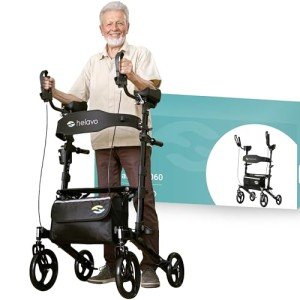A Comprehensive Guide to Medical Walkers: Enhancing Mobility and Independence
In the world of healthcare, mobility plays an essential role in rehabilitation and general well-being, particularly for seniors and those recuperating from injuries. Among the myriad of mobility help offered today, medical walkers stand out as flexible tools that assist in motion and improve self-reliance. This post will dig into the types, advantages, considerations, and FAQs concerning medical walkers.
What is a Medical Walker?
A medical walker, often described as a walking frame, is an encouraging device created to help people with mobility challenges stroll with greater stability and ease. Walkers provide a more comprehensive base of support compared to walking canes and crutches, making them perfect for those with balance problems or restricted strength.
Types of Medical Walkers
| Type | Description | Features |
|---|
| Requirement Walker | A standard Four Wheel Walker-legged frame without wheels, utilized mostly for stability. | Lightweight, tough, adjustable height, appropriate for indoor and Outdoor Walker usage. |
| Wheeled Walker (Rollator) | A walker with wheels on the front legs, permitting easier motion. | Equipped with hand brakes, a seat for resting, and storage options. |
| Hemi Walker | A walker created for individuals who can use one arm and need support. | Lightweight and compact, features a curved manage for simpler gripping. |
| Bariatric Walker | Designed for larger individuals, using increased weight capability and stability. | Improved durability, wider frame, and supportive features for much heavier users. |
| Knee Handicapped Walker | An unique alternative for those with leg injuries, allowing them to rest the knee. | A platform to support the hurt leg, guiding capabilities, and brakes. |
Benefits of Using a Medical Walker
- Enhanced Stability: Walkers provide additional points of contact with the ground, resulting in a more stable walking experience.
- Increased Independence: Users can browse their environment without needing assistance, improving self-confidence and self-reliance.
- Improved Safety: The risk of falls is considerably reduced, as walkers provide support to those with balance concerns.
- Flexible Usage: Many walkers are developed for both indoor and outdoor usage, adjusting to different surfaces.
- Assistance throughout Rehabilitation: Medical walkers are vital during healing from surgeries, injuries, or illnesses.
Considerations When Choosing a Medical Walker
When choosing a medical walker, various elements must be remembered:

| Consideration | Description |
|---|
| User's Condition | Examine the person's strength, coordination, and particular requirements. |
| Equipment Weight | Guarantee the walker is lightweight enough for easy handling but tough enough for support. |
| Adjustable Height | The walker should be adjustable to fit the user's height for ideal convenience and functionality. |
| Hand Grip Comfort | Examine that the grips are comfortable to hold for prolonged durations. |
| Weight Capacity | Guarantee the walker can support the user's weight, particularly for bariatric walkers. |
| Storage Needs | Identify if extra features like baskets or trays are essential for bring products. |
Regularly Asked Questions (FAQs)
How do I determine if I need a walker?If you experience problem in preserving balance, feel unstable walking, or need assistance on flat surfaces or slopes, it's advisable to consult a health care specialist for an evaluation. Can I use a walker outdoors?Yes, specifically developed
walkers with bigger wheels(wheeled walkers or rollators)appropriate for outdoor use and can deal with numerous terrains effectively. How do I preserve my walker?Regularly examine the walker for loose parts, make sure wheels are lubricated if
relevant, and tidy it as needed. Speak with
the manufacturer's standards for particular upkeep directions. Are walkers covered by insurance?Many insurance plans offer coverage for walkers, however it is important to contact your provider to comprehend your particular policy
details. Can a walker help with physical therapy?Yes, utilizing
a walker can support rehabilitation efforts by providing stability during workouts recommended by physiotherapists. Medical walkers are important tools that not
just facilitate movement and independence but also considerably enhance the lifestyle for people facing mobility challenges. With different types readily available, picking the right walker is
vital to satisfying individual requirements. The journey to restoring mobility can be overwhelming, but with the ideal equipment and support, people can overcome barriers and reclaim their self-reliance. By comprehending the kinds of walkers, their benefits, and essential considerations, users can make informed choices-- leading to a safer, more confident method of moving through life. Whether it's a Non-Slip Rollator Walker for outdoor adventures or a simple Euro-Style Walker for indoor navigation, the right walker can open doors to newfound liberty and improvement in every day life.









